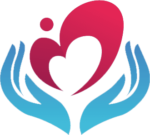If I get exposed to COVID-19 or if I get it, am I immune from now on?
Unfortunately, no. If you believe you have been exposed and you didn’t get sick, you were lucky, not immune. And, our best information suggests that even if you were unlucky and got sick from COVID-19, you may still be able to get it again later.
Wait—I’m confused. Who has to quarantine themselves at home?
Yes, it’s confusing. I’ve linked to our guidance here, but let’s walk through it.
You have a cough and a fever:
- If you have NOT been around anyone who has been diagnosed with COVID-19, you should stay home away from others until 72 hours after the fever is gone and symptoms get better. You may have COVID-19 or you may have any number of other respiratory diseases circulating in our communities.
- if you have NOT had a COVID-19 test, but you have had close contact with someone who has had a test and been diagnosed with COVID-19, you should isolate yourself at home for 7 days OR until 72 hours after your fever is gone and your symptoms get better, whichever is longer.
- If you have had a test and actually been diagnosed with COVID-19, you need to stay home away from people for 7 days or until 72 hours after your fever and symptoms are gone, whichever is longer.
You feel fine:
- BUT you have had close contact with a sick person who has been diagnosed with COVID-19. Please monitor your health for fever, cough and shortness of breath during the 14 days after the last day you were in close contact with the sick person with COVID-19. You should not go to work or school, and should avoid public places for 14 days.
- BUT your kid or someone else in your household has a cough and a fever, but has NOT been tested for COVID-19. The sick person needs to stay home until their fever and symptoms have been gone for 72 hours. You and the rest of the household can continue to go to work and school as long as you feel well. There are many potential respiratory diseases that can cause cough and a fever.
- BUT a friend of a friend of yours has COVID-19. You can continue to go to work and school as long as you feel well. If you have not been around someone with COVID-19, the chances that it is COVID-19 are fairly low.
- BUT you are worried about your older or medically fragile friends and relatives. This is a time to practice social distancing. Refrain from shaking hands, high fives, and hugs, stand 6 feet or more away from other people. See if you can work from home. Wash your hands frequently.
According CDC Guidelines, Here are Steps to Protect Yourself and Others
Clean your hands often
- Wash your hands often with soap and water for at least 20 seconds especially after you have been in a public place, or after blowing your nose, coughing, or sneezing.
- If soap and water are not readily available, use a hand sanitizer that contains at least 60% alcohol. Cover all surfaces of your hands and rub them together until they feel dry.
- Avoid touching your eyes, nose, and mouth with unwashed hands.
Avoid close contact
- Avoid close contact with people who are sick
- Put distance between yourself and other people if COVID-19 is spreading in your community. This is especially important for people who are at higher risk of getting very sick.
Stay home if you’re sick
- Stay home if you are sick, except to get medical care. Learn what to do if you are sick.
Cover coughs and sneezes
- Cover your mouth and nose with a tissue when you cough or sneeze or use the inside of your elbow.
- Throw used tissues in the trash.
- Immediately wash your hands with soap and water for at least 20 seconds. If soap and water are not readily available, clean your hands with a hand sanitizer that contains at least 60% alcohol.
Wear a facemask if you are sick
- If you are sick: You should wear a facemask when you are around other people (e.g., sharing a room or vehicle) and before you enter a healthcare provider’s office. If you are not able to wear a facemask (for example, because it causes trouble breathing), then you should do your best to cover your coughs and sneezes, and people who are caring for you should wear a facemask if they enter your room. Learn what to do if you are sick.
- If you are NOT sick: You do not need to wear a facemask unless you are caring for someone who is sick (and they are not able to wear a facemask). Facemasks may be in short supply and they should be saved for caregivers.
Clean and disinfect
- Clean AND disinfect frequently touched surfaces daily. This includes tables, doorknobs, light switches, countertops, handles, desks, phones, keyboards, toilets, faucets, and sinks.
- If surfaces are dirty, clean them: Use detergent or soap and water prior to disinfection.






